- Products
Development Framework & Tools
-
Qt Framework Cross-platform software libraries and APIs
-
Qt Development tools Qt Creator IDE and productivity tools
-
Qt Design Studio UI Design tool for UI composition
-
Qt Quality Assurance for Qt projects
-
Qt Digital Ads Digital advertising for UI apps
-
Qt Insight Usage intelligence for embedded devices
- Qt product updates
-
Qt 6 The latest version of Qt
Quality Assurance Tools
- Solutions
We have solutions for your entire cross-platform software development lifecycle.
- Which platform are you targeting?
-
Desktop and Mobile Applications
-
Embedded devices
-
Microcontrollers (MCUs)
- At what stage is your project?
-
Planning and resourcing
-
Designing UI and prototyping
-
Developing, compiling and coding
-
Testing and debugging
-
Deploying and maintaining
- What do you want to improve?
-
Scalable software and UI development
-
User-Centric UX/UI Design
-
Virtual Qt World
-
- Which industry needs are you looking to optimize?
-
Automotive design
-
Industrial automation
-
Consumer electronics creation
-
Medical device development
- What is your main responsibility in your current role?
-
Managing a team
-
Developing apps or embedded solutions
-
UI design and prototyping
-
Quality assurance and testing
- Resources
COMMERCIAL LICENSING
Pricing, Packaging and Licensing for Qt products
Get the full, elevated experience with a licensing plan designed to support your business goals with our Qt Framework or Quality Assurance Tools.
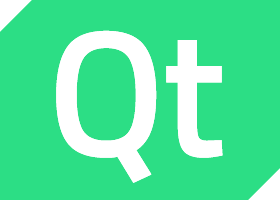
Design Tools
Qt Design tools are built for technical artists and user interface designers. You will have a comprehensive feature set enabling you to create pixel perfect, QML based UIs, including 3D animations. The tools are optimized for efficient collaboration with software developers.
|
Packages/Bundles available: |
All |
|
Support: |
Technical support SLA or upgrade to Premium Support available |
|
Customer Success Management: |
Dedicated account manager |
|
License Management: |
Licenses are transferable every 6 months |
|
Terms and Conditions: |
Licensing T&C here |
Starting from
$188
per month / per user with
1-year prepayment
Available subscriptions
Monthly & yearly subscriptions with auto-renewal.
COST
Subscription per developer i
Yearly payment plan
Monthly payment plan
FEATURES
Design applications & devices
Import designs from Adobe XD, Figma, Sketch, Maya, Modo, Blender and other 3rd party tools
Additional productivity and performance tools
SUPPORTED PLATFORMS
SERVICES
Standard Support
Optional: Premium Support
Optional: Extended Support
COMPONENTS
Qt Design Studio
PROFESSIONAL
ENTERPRISE
with 1-yr. prepayment of $2,260
with 1-yr. prepayment of $2,300
$226/mo. paid monthly
$230/mo. paid monthly
Qt Design Studio - UI Design tool
Qt Design Studio - UI Design tool
Qt Design Studio Bridges

Development Tools
Qt Development Tools are used by software engineers who want to excel in productivity while using C++, QML, Python, JavaScript or HTML5 in their solution, be that a desktop or mobile application or a dedicated device.
|
Packages/Bundles available: |
All |
|
Support: |
Technical support SLA or upgrade to Premium Support available |
|
Customer Success Management: |
Dedicated account manager |
|
License Management: |
Licenses are transferable every 6 months |
|
Terms and Conditions: |
Licensing T&C here |
|
Distribution Fees: |
See package info below |
Starting from
$316
per month / per user with
1-year prepayment
Available subscriptions
Monthly & yearly subscriptions with auto-renewal.
Distribution costs
Volume-based for devices.
COST
Subscription per developer i
Yearly payment plan
Monthly payment plan
Distribution fee
FEATURES
Design user interfaces with Qt Quick
Design user interfaces with Qt Widgets
Develop applications
Develop with M2M connectivity
Qt Quick Compiler Extensions
Develop devices
Ready made embedded device images
Safety Critical use cases
Complex multi-app multi domain solutions
Develop devices for automotive
SUPPORTED PLATFORMS
Development hosts
Deployment targets
SERVICES
Technical Support
Optional: Premium Support
Optional: Extended Support
Customer Success Manager
COMPONENTS
Qt for Application Development
PROFESSIONAL
ENTERPRISE
with 1-yr. prepayment of $3,790
with 1-yr. prepayment of $4,090
$379/mo. paid monthly
$409/mo. paid monthly
$0
$0
Windows | macOS | Linux (desktop)
Android (mobile and tablet) | iOS
Qt Design Studio Professional
Qt Design Studio Professional
Qt Creator
Qt Creator
Qt Framework
Qt Framework
Qt for Device Creation
PROFESSIONAL
ENTERPRISE
Pricing provided upon request
Pricing provided upon request
n/a
n/a
Volume-based
Volume-based
Linux (embedded) | INTEGRITY | QNX | VxWorks | webOS | Bare metal (MCU) | FreeRTOS (MCU) | SafeRTOS (MCU) | Windows | macOS | Linux (desktop) | Android (mobile and tablet) | iOS
All except automotive grade hardware
Automotive grade Microcontrollers and Application Processor hardware
Qt Design Studio Professional
Qt Design Studio Professional
Qt Creator
Qt Creator
Qt Framework
Qt Framework
Quality Assurance Tools
Cross-device, cross-technology GUI testing, coupled with code coverage analysis of your entire test framework, tied together in a central platform for result analysis and management characterize the capabilities of the suite.
|
Packages/Bundles available: |
All |
|
Technical Support: |
Standard Support or upgrade to Premium Support available |
|
Customer Success Management: |
Dedicated account manager |
|
License Management: |
Floating licenses |
|
Terms and Conditions: |
Licensing T&C here |
Starting from
$583
for testing
$146
for code coverage
per month / per floating license with 1-year prepayment
Available subscriptions
Yearly subscription with auto-renewal.
PRICE
(Only annual payment plan available)
FEATURES
Squish
Execute test cases
Create, edit and debug test cases in Squish IDE
GUI frameworks
Coco
Coverage browser
Language modules
Both
Optional: Cross compilation add-on
Test Center License
Optional: Additional Test Center floating license
SERVICES
Standard Support
Optional: Premium Support
Optional: Extended Support
Squish Tester floating license
Qt | Windows | macOS | iOS | Android | Web | VNC | Java
Squish Execution floating license
Qt | Windows | macOS | iOS | Android | Web | VNC | Java
Coco floating licenses
C | C++ (and Qt) | C# | QML | Tcl

Other Tools
Qt is a strategic choice for your entire software development lifecycle enabling you to produce software with the highest quality and lowest cost in the shortest time.
Qt Digital Ads
Turn any mobile application or embedded screen into a revenue generator. There is no cost for the plugin and library. We offer both Direct Ad and Programmatic services with standard advertising industry cost models.
Qt Insight
Qt Insight is an application analytics solution designed to provide real insights into how people use your application or device. Available with an annual subscription license in a secure cloud setup. The price of the subscription license will depend on the number of events per month and the desired data retention period.
Qt's stack
Commercial licensing of the Qt framework and QA tools.
- License compatibility totally risk-free
- Interoperability between libraries guaranteed
- High-quality development and design tooling included
- Commercial professional support
- Known hardware requirements for product budgeting
- Lower development and maintenance costs with cross-platform libraries
"Free" DIY stack
Build your own dev stack comprising free technologies from various vendors.
- Managing license compatibility can be complex, risky and time-intensive
- Adds development testing time for guaranteeing library interoperability
- Cost for leveling up development and design tooling
- Varying quality of support resources
- Volatility of dependencies across multiple code bases
- Unpredictable BoM
Save big with Qt Tools
Estimate the economic impact that choosing Qt for Device Creation will have on your project.
Try Qt Framework or QA Tools
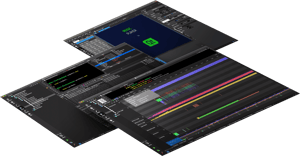
Start a free 10-day trial – no credit card required, no commitment.
Qt comes loaded with resources

The Qt Ecosystem One-Stop-Shop for Extensions and more!
#1 place to find and share content for Qt
Qt Documentation
Here you'll find documentation for Qt, a cross-platform software development framework
Built with Qt
MEDICAL DEVICE SUCCESS STORY
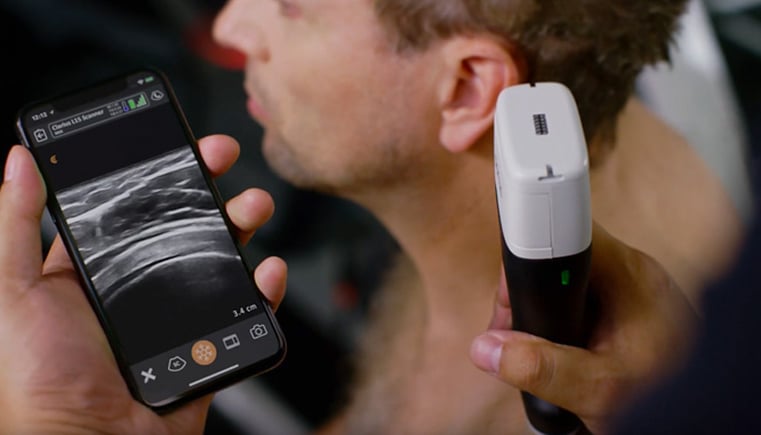
Clarius Mobile Health
Clarius saved 500 hours of development time and got their next generation of portable ultrasound products to market (six months ahead of target) with Qt Commercial.
AUTOMOTIVE DASHBOARD CASE
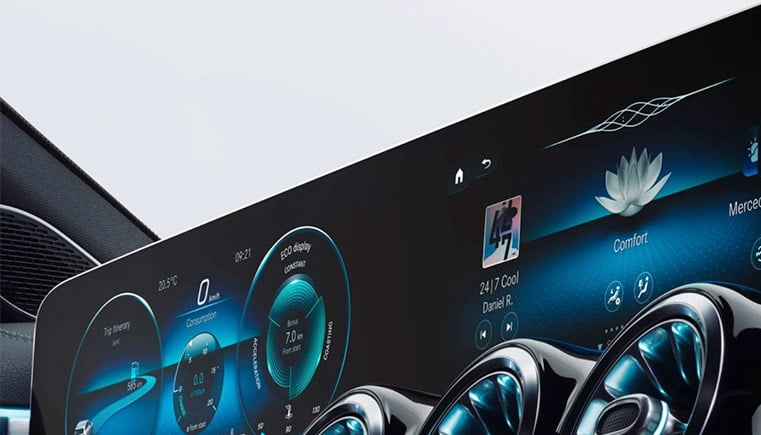
Mercedes-Benz/Daimler
The Mercedes-Benz (MBUX) in-car infotainment system revolutionizes the industry standard and separates them from the competition with intelligent GUIs built with Qt.
IN-FLIGHT ENTERTAINMENT CASE
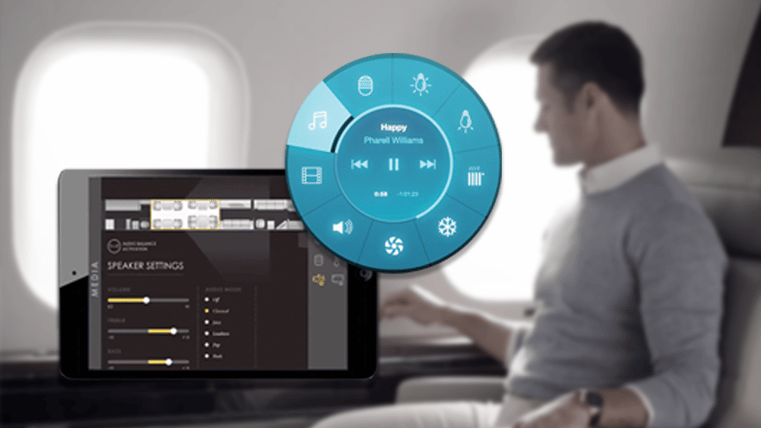
Lufthansa Technik
Lufthansa Technik relies on Qt to provide their developers and designers with the tools to iteratively build the smoothest UIs in the skies.
-
1.0. When do I need a Qt for Application Development and when a Qt for Device Creation license?
- If you create a device, you need Qt for Device Creation License. When you build a hardware that incorporates, integrates, or links to parts of Qt’s software libraries, it is a device. Also, when the main intended use case of a hardware product depends on Qt’s products and there are no other means for using the hardware for its main intended use case, the hardware is considered a device.
- The Qt for Application Development license is sufficient to create applications that run on desktop PCs, mobile phones, or tablets. These kinds of computers are typically used also for reading email, browsing the Internet and so on. A Qt-based application is only one of many applications on these computers. The main use case of these computers is not dedicated to the use of your Qt-based application.
-
Can a commercial license be assigned to another person?
Yes. A License Manager, that needs to be assigned for each organization using Qt, can assign licenses from one user to another in Qt’s customer portal. Note that the License Manager can reassign a license only once within six months. Qt’s Support Center can nominate the License Manager from any of the license holders within the company.
-
Can I cancel my subscription at any time?
You can cancel your subscription at any time, this will stop the auto-renewal of your subscription and your license will be terminated at the end of your current term. For logistical reasons there is a 30 day cancel period before the end of your term, i.e., you need to cancel no later than 30 days before the expiry of your subscription. If you cancel the subscription less than 30 days before expiry, then your subscription will be automatically renewed for the next term.
-
Can I continue to distribute my application after my developer license has expired?
If you purchased your licenses under the Qt License Agreement 4.4 (released in Feb 2022) or later, you can continue to distribute your applications after your subscription has expired. Distribution of devices is subject to having acquired the corresponding Distribution Licenses. However, you are not allowed to make any changes to the software including bug fixes or security updates using Qt’s tools.
With older Qt License Agreements, there are more limitations on distributing the applications or using already purchased Distribution Licenses beyond the expiration of your license.
If you are unsure, you can check your License Agreement version from your Qt Account customer portal or contact Qt Sales.
-
Can I continue to distribute my application with my device after my license has expired?
Yes, if you have unused distribution licenses, you may continue distributing the applications with your device, if you have licensed Qt under Qt License Agreement version 4.4 (released in Feb 2022) or later. Otherwise, you have 6 months to utilize your Distribution Licenses after the end of your developer license term.
You are however not allowed to access Qt updates or use Qt tools or libraries to further develop or maintain the applications for the device. We recommend that for maintenance and security reasons you maintain at least one Qt developer license. -
Can I continue to use Qt tools or libraries after the subscription has expired?
No. If you are a subscription license holder, your rights to continue using the tools, APIs and libraries or access to any updates will expire when the subscription expires, or the subscription is cancelled. You will not have the rights to future development.
-
Can I distribute Qt binaries in conjunction with my desktop or mobile application?
Yes. Distribution of Qt libraries in binary form in conjunction with the developed application is allowed.
-
Can I install Qt on one computer for coding and other Qt components on another computer as a build server?
Yes. You can install the Qt framework and our development tools to up to five computers. Our licenses are per named individual, so all members of your team using Qt need to have a valid license. For example, Qt software running on build server established using your license may not be accessed by a user without license. Misuse may lead to payment entitlement of all applicable license fees retrospectively.
-
Can I lock devices to prevent users from tampering with them when I have a commercial license?
Yes. Locking of devices, also known as Tivoization, is allowed under the commercial license.
-
Can I mix different commercial license types in one project or product?
Designer licenses can be mixed freely with developer licenses. In other words, any designer license, Qt Design Studio Professional or Enterprise, can be used with any developer license such as Qt for Application Development Professional/Enterprise or Qt for Device Creation Professional/Enterprise.
All members of the same product / project team need to have same Qt developer license type; Qt for Application Development Professional/Enterprise or Qt for Device Creation Professional/Enterprise. For example, one part of the team cannot be using a license for Qt for Device Creation Professional and another part Qt for Device Creation Enterprise as it would create difficulties to manage which user can use which feature.
Likewise, all designers in the design team must have same designer license type, either Qt Design Studio Professional or Qt Design Studio Enterprise. -
Can I use one license for multiple projects (applications or devices)?
Yes, you can use your commercial license to design, develop or test multiple products.
A Qt for Application Development license can be used for creating many different application products on generic desktop and mobile targets. Likewise, a Qt for Device Creation license can be used for all Qt for Application Development use cases as well as for creating multiple products.
Only the Qt for Device Creation Distribution licenses and Qt Extended Support are dedicated for a specific product. -
Do I have to purchase a commercial license for every user in our team?
If you have chosen the commercial licensing, each Qt user must have their own assigned Qt commercial license. UI Designers, Technical Artists, Software Developers, or Test Automation Engineers might have different kind of Qt licenses, but every single person needs a valid subscription license. It is not permitted to mix Qt commercial licensees with open-source licensees in the design, development and testing of one hardware device or application. The Qt Company has the right to audit the use of commercial Qt products.
-
Do I need to have a distribution license to distribute my application with a hardware device?
To provide or distribute a Qt-based application on devices under Qt commercial license, distribution licenses are also required. This means if your device incorporates or integrates parts of the Qt software libraries or if the main functionality of the device depends on Qt’s products regardless of whether Qt’s products are distributed or not, then you need a distribution license.
-
Do the commercial Qt license agreements grant the right to do static linking of Qt libraries with applications?
Yes, unlike some open-source setups, static linking is allowed with a commercial Qt license.
-
Does Qt commercial licensing allow for source code distribution of Qt libraries or tools?
No, it does not. Qt libraries may be distributed in binary form only with the application.
-
How can I upgrade from one Qt product edition to another one?
Please contact Qt sales for discussing the best possible upgrade choice.
-
I have acquired an Qt for MCUs subscription before 2022 - What will happen to my license at the end of the subscription?
Your subscription will be automatically converted to the corresponding license which contains all the same features during the autorenewal at the end of the term. If you have the Qt for MCUs Essential package, then this will be renewed to the Qt for Device Creation Professional license. If you have the Qt for MCUs Ultimate license, then the license will be converted to an Qt for Device Creation Enterprise license.
-
I have purchased a Qt for Application Development or a Qt for Device Creation subscription before 2022 - What happens at the end of my subscription?
Your subscription will be automatically converted to the corresponding license which contains all the same features during the autorenewal at the end of the term. For licensees of the Qt for Application Development license, this will be Qt for Application Development Enterprise license. If you have a Qt for Device Creation license, then the license will be converted to an Qt for Device Creation Professional license unless you have acquired components previously licensed for the automotive industry. In that case, your license will be converted to the Qt for Device Creation Enterprise license.
-
I intend to access Qt's APIs through a wrapper, do I still need a license?
Yes. Wrappers do not block the licenses of the libraries they wrap. Licenses are passed on through the wrapper, hence developers using the wrapper must comply to the wrapped libraries’ licenses.
-
Is there a difference between the commercial license bought online and the commercial license bought via a sales manager?
The features and functionality and license are the same. The only difference are the payment options.
-
We have started to develop a product with an open source license - How can we upgrade to a commercial Qt license?
You can convert from developing under open source to commercial terms and conditions by contacting the Qt Company. The commercial license does not by default allow using of code created under open source license, thus you will need to contact the Qt Company to help you with the transition.
-
When do I need a license to use Qt’s framework, tools, or libraries?
To protect the interest of the creators and maintainers of Qt, every user of Qt must either have a valid commercial license or needs to agree to the open-source terms and conditions. The commercial Qt license gives you the full rights to create and distribute software on your own terms without any open source license obligations. The Qt open-source licensing is ideal for use cases such as open source projects with open-source distribution, student/academic purposes, hobby projects, internal research projects without external distribution, or other projects where all GPL and LGPL obligations can be met.










